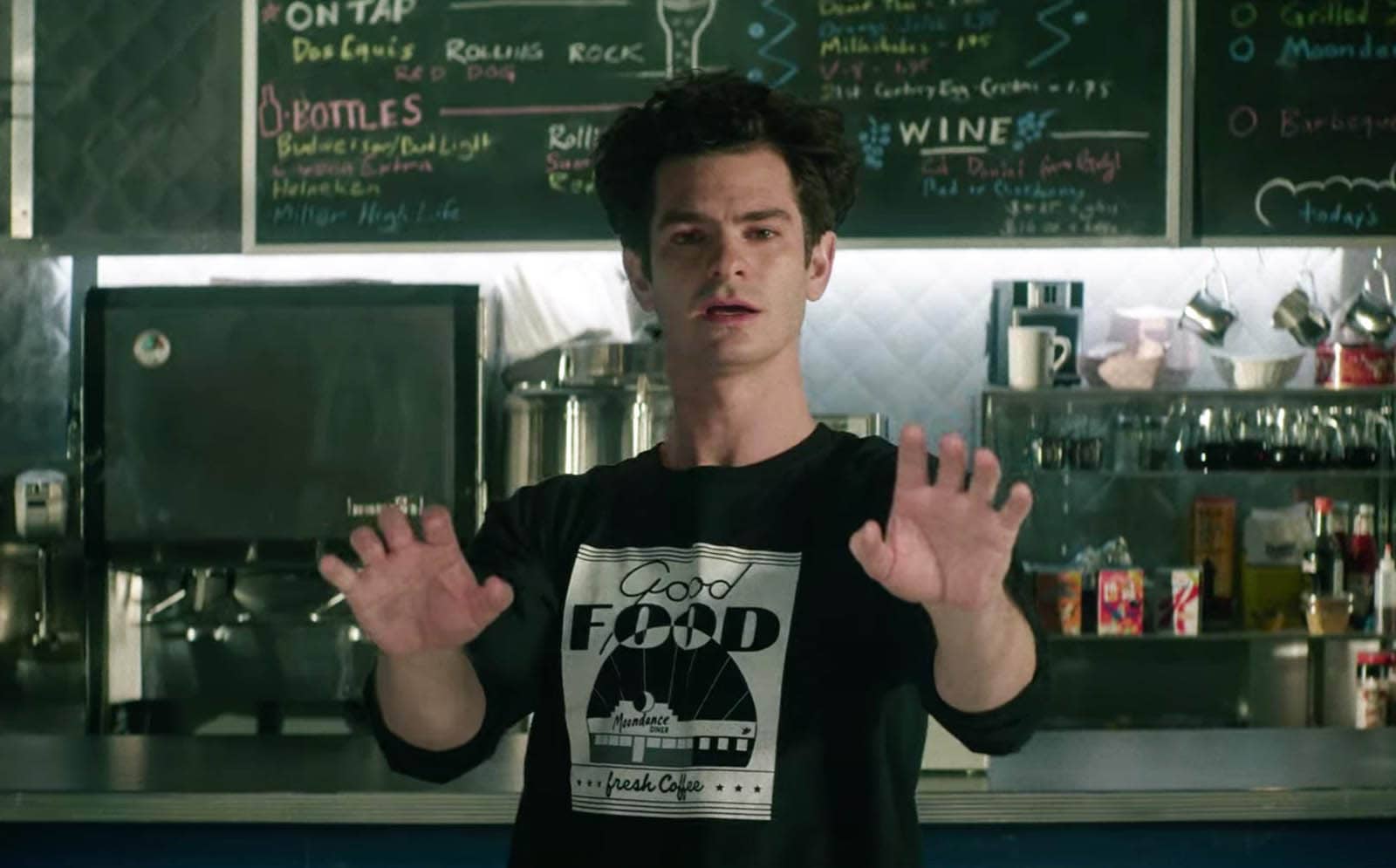At one point in Infinite’s first act, Evan McCauley (Mark Wahlberg) looks at a bustling New York City and wonders in voiceover, “All these people, all going somewhere, all doing something. What does it all add up to?” You see, much like Neo in The Matrix, Evan suspects that there’s something more to the world than what’s simply before his eyes—something that he catches glimpses of through aggressively vivid dreams and hallucinations. His condition is chalked up to schizophrenia and he struggles through his day-to-day existence (albeit in very clean and well-groomed fashion), trying to contain the internal rage and emotional lapses which prevent him from holding down a regular job.
Since Infinite is actually a stealth superhero movie, though, the mystery of what lies beneath the so-called “real” world here isn’t something to be intriguingly teased out or built up to by the filmmakers. In fact, before we’re even introduced to Evan, we’re treated to an introductory exposition dump of narration laid over a chaotic prologue set in Mexico City. Infinites, as we’re solemnly told, are a small group of people with the ability to remember their past lives. Within this group, there are two warring factions: the Believers, who treat this ability as something to be treasured, and the Nihilists, who see it as a curse and aim to wipe out the whole of humanity so as to avoid enduring eternal cycles of reincarnation.
And with the groundwork so concretely laid, any questions about Evan’s shaky mental state are quickly shuttled away. The link between psychosis and superhero narratives is ripe for exploration, but this seems to be the furthest thing from the film’s mind. Rather, Infinite is more concerned with the hunt for a fabled golden egg, a device created by the Nihilists to bring about the end of the world, the whereabouts of which can only be provided by Evan’s past-life memories. This leads to the Believers taking Evan under their wing to help him fully recollect his former lives and train to become an elite warrior in the process. Meanwhile, evil Nihilist leader Bathurst (Chiwetel Ejiofor, looking the supervillain part with a bald head and fashionably pointy goatee) is also after the egg, killing any Believer who stands in his way.
These banal superhero clichés would barely be worth commenting on if not for the intriguing concept at the center of the film. Based on D. Eric Maikranz’s The Reincarnationist Papers, Infinite is certainly primed for existential inquiry about how this form of immortality through reincarnation may ultimately wreak havoc on the human soul. But symptomatic of the Marvel-ization of modern action cinema, the film’s narrative exists mostly to introduce us to a new group of franchisable heroes, all of whom are strikingly personality-free considering that they’ve all lived countless lives beforehand. When one character tells Evan, “Maybe destiny has something planned for you,” it alludes to nothing but the potential for further sequels.
As pure visual spectacle, Infinite similarly fails, bombarding its audience with cut-rate CGI effects that reduce the film’s action sequences to a mess of digital sludge. By the time Evan motorcycles off a cliff on to the wing of a passing plane during the climax, it’s hard not to balk at this blip on the green screen. Lifelessly directed by Antoine Fuqua, Infinite’s only sense of artistic inspiration seems to come from continually aping The Matrix, from Evan’s early interrogation room showdown with the Agent Smith-like Bathurst to copious uses of the worn-out “bullet time” technique. If only the film had borrowed even a fraction of Lana and Lilly Wachowski’s dime-store philosophizing as well, maybe it would be on to something halfway compelling. On the other hand, they could be saving that for the sequel.
Since 2001, we've brought you uncompromising, candid takes on the world of film, music, television, video games, theater, and more. Independently owned and operated publications like Slant have been hit hard in recent years, but we’re committed to keeping our content free and accessible—meaning no paywalls or fees.
If you like what we do, please consider subscribing to our Patreon or making a donation.






